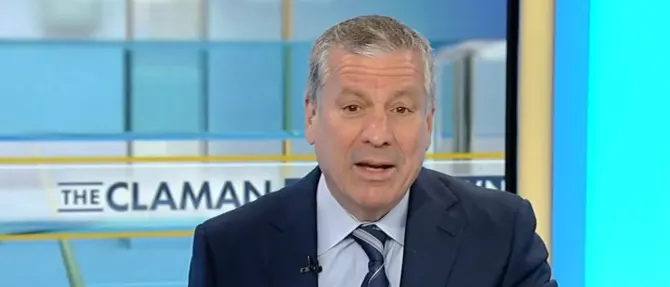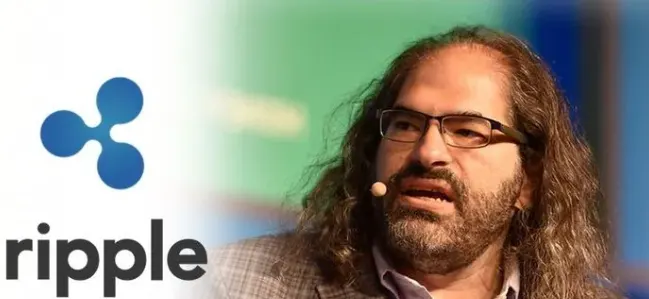 CaryptosHeadlines Media Has Launched Its Native Token CHT.
Airdrop Is Live For Everyone, Claim Instant 5000 CHT Tokens Worth Of $50 USDT.
Join the Airdrop at the official website,
CryptosHeadlinesToken.com
CaryptosHeadlines Media Has Launched Its Native Token CHT.
Airdrop Is Live For Everyone, Claim Instant 5000 CHT Tokens Worth Of $50 USDT.
Join the Airdrop at the official website,
CryptosHeadlinesToken.com
Ripple, one of the most prominent names in the cryptocurrency world, continues to find itself at the center of controversy and intrigue. From Charles Gasparino’s sharp critiques of the XRP community to Ripple CTO David Schwartz addressing misconceptions about his net worth, the debates surrounding the blockchain company reflect the complex dynamics of the crypto ecosystem. While XRP’s market performance and Ripple’s ongoing legal battles with the SEC draw global attention, the personal narratives of its key figures add another layer to the unfolding story.
Fox Business reporter Charles Gasparino has reignited tensions with the XRP community, delivering scathing remarks that have once again put him at odds with supporters of the cryptocurrency. Known for his provocative takes on financial matters, Gasparino recently dismissed the concept of an “XRP army,” a term often used to describe the passionate and vocal supporters of the fourth-largest cryptocurrency by market capitalization.
In a move that angered the XRP faithful, Gasparino alleged that the community is primarily composed of individuals who “bought the coin and made insiders rich.” His remarks come amidst lingering disputes between Ripple Labs, the blockchain company behind XRP, and the US Securities and Exchange Commission (SEC). Adding fuel to the fire, Gasparino also criticized the recent ruling by US District Judge Analisa Torres in the Ripple case, calling it “dumb.”
The Ripple case has been a focal point of debate in the cryptocurrency industry. While Judge Torres ruled that secondary sales of XRP are not securities, Gasparino has consistently questioned the implications of this decision. He has gone as far as to suggest that Ripple’s legal victory was overstated, asserting last November that the company ultimately “lost” its battle with the SEC.
In his latest commentary, Gasparino expressed skepticism that the departure of SEC Chairman Gary Gensler would lead to a change in the agency’s stance on Ripple. According to Gasparino’s sources, even under the leadership of libertarian Paul Atkins, who is poised to replace Gensler, the SEC is unlikely to abandon its long-standing case against Ripple.
In an article for the New York Post, Gasparino detailed the challenges the cryptocurrency industry might face under Atkins’ tenure. While Atkins is viewed by some as more open to innovation in the financial sector, Gasparino suggests that his appointment does not guarantee leniency for Ripple or the broader crypto space.
XRP’s Market Rollercoaster
The XRP token experienced a significant rally in the fourth quarter of 2024, driven in part by optimism surrounding the legal battle and broader market sentiment. However, Gasparino downplayed the rally, asserting that only insiders truly benefited from the price surge. He also highlighted the token’s inability to sustain its gains, noting that XRP has since surrendered a substantial portion of its value.
This characterization of XRP’s performance has further angered its community, many of whom view Gasparino as an antagonist in the ongoing debate over Ripple’s future. The reporter has previously referred to the XRP community as a “cult,” a remark that cemented his contentious relationship with its members.
Gasparino’s critiques bring attention to broader concerns about the cryptocurrency industry’s regulatory landscape. The SEC’s case against Ripple is one of the most closely watched legal battles in the sector, with significant implications for how digital assets are classified and regulated in the United States.
If Gasparino’s predictions hold true and the SEC continues to pursue the case under Atkins, it could dampen investor sentiment and prolong the uncertainty surrounding XRP. The XRP community, however, remains steadfast in its belief that Ripple’s technology and the token’s use cases will prevail in the long term.
The XRP community has responded to Gasparino’s latest remarks with characteristic fervor. Social media platforms have been inundated with posts defending the token and criticizing the reporter for his perceived bias against Ripple. Prominent members of the XRP community argue that Gasparino’s views do not reflect the broader adoption and innovation occurring within the Ripple ecosystem.
Ripple CEO Brad Garlinghouse has previously criticized detractors like Gasparino for spreading misinformation, emphasizing that the company is committed to fighting for regulatory clarity and advancing the use of blockchain technology.
Ripple CTO David Schwartz Denies Billionaire Status Amid XRP’s Resurgence
Meanwhile, David Schwartz, the Chief Technology Officer at Ripple, has publicly refuted claims of being a billionaire, reigniting discussions about the financial windfalls of key figures in the cryptocurrency space. In a recent social media post, Schwartz denied crossing the billion-dollar mark, even as XRP, Ripple’s associated cryptocurrency, remains in the spotlight following a major rally earlier this year.
Ripple, headquartered in San Francisco, gained global attention during XRP’s meteoric rise in 2018, when its top executives were listed among the world’s wealthiest individuals. Co-founder Chris Larsen saw his net worth soar to an astonishing $54 billion during the rally, thanks largely to his allocation of 9 billion XRP tokens. Similarly, Ripple CEO Brad Garlinghouse reportedly amassed a fortune close to $10 billion at the cryptocurrency’s peak price.
Schwartz, often dubbed Ripple’s “trillion-dollar man” by outlets like Forbes, followed a different path. Rather than accumulating XRP tokens, Schwartz opted for a 2% equity stake in Ripple and a salary. As of 2019, Forbes estimated his net worth at $90 million—a stark contrast to the fortunes of his colleagues.
In 2021, Schwartz addressed his financial standing, stating that his net worth was “a lot less than $170 million.” Reflecting on the volatility of his holdings, he remarked, “Circumstance has forced me to have a lot of my net worth tied up in highly volatile assets. Obviously, I’m very happy with how it’s turned out, but always a bit on edge due to the risk.”
Schwartz’s Cryptocurrency Portfolio
Despite foregoing a significant XRP allocation early on, Schwartz remains an active participant in the cryptocurrency market. In 2020, he disclosed holding XRP, Bitcoin (BTC), and several other altcoins. However, his investments, tied to the unpredictable world of digital assets, have made his financial journey less stable than that of Ripple’s early investors.
While Schwartz’s conservative approach to Ripple’s token distribution reflects his caution, it also places him outside the ranks of high-profile cryptocurrency billionaires such as Binance founder Changpeng Zhao and Coinbase CEO Brian Armstrong.
Earlier this year, XRP experienced a significant rally, briefly reclaiming its position as the third-largest cryptocurrency by market capitalization. This resurgence was driven by investor optimism surrounding Ripple’s legal battle with the SEC. The case has had far-reaching implications for the classification of digital assets, making Ripple and XRP a central topic in the cryptocurrency ecosystem.
During this rally, Chris Larsen reportedly added $6 billion to his net worth in a single month, solidifying his place among the elite in the crypto billionaire club. However, this wealth distribution among Ripple’s top brass has often sparked criticism within the cryptocurrency community, with some alleging that early insiders disproportionately benefitted from XRP’s success.
Schwartz’s public denial of billionaire status sheds light on his measured approach to wealth accumulation and the inherent volatility of the cryptocurrency market. His decision to prioritize equity in Ripple over a massive allocation of XRP tokens is a departure from the strategies of other Ripple executives who saw their fortunes balloon during XRP’s peaks.
The CTO has often expressed caution regarding the risks of holding large amounts of volatile assets. In October 2021, Schwartz candidly acknowledged the tension between enjoying financial gains and managing the stress of market unpredictability. This transparency has earned him respect among industry peers and crypto enthusiasts alike, even as XRP continues to fuel debates about wealth distribution in the blockchain sector.
As XRP remains a cornerstone of the cryptocurrency market, Ripple’s leadership continues to face scrutiny over its financial strategies and the role of XRP in the company’s broader vision. Schwartz, with his pragmatic approach and technical expertise, has become a key figure in shaping Ripple’s narrative amidst ongoing regulatory and market challenges.
For now, the Ripple CTO’s wealth pales in comparison to the staggering fortunes of his colleagues, yet his influence in the cryptocurrency space remains undisputed. His financial decisions and public commentary offer a rare glimpse into the complexities of navigating personal wealth in an industry marked by rapid innovation and extreme volatility.














